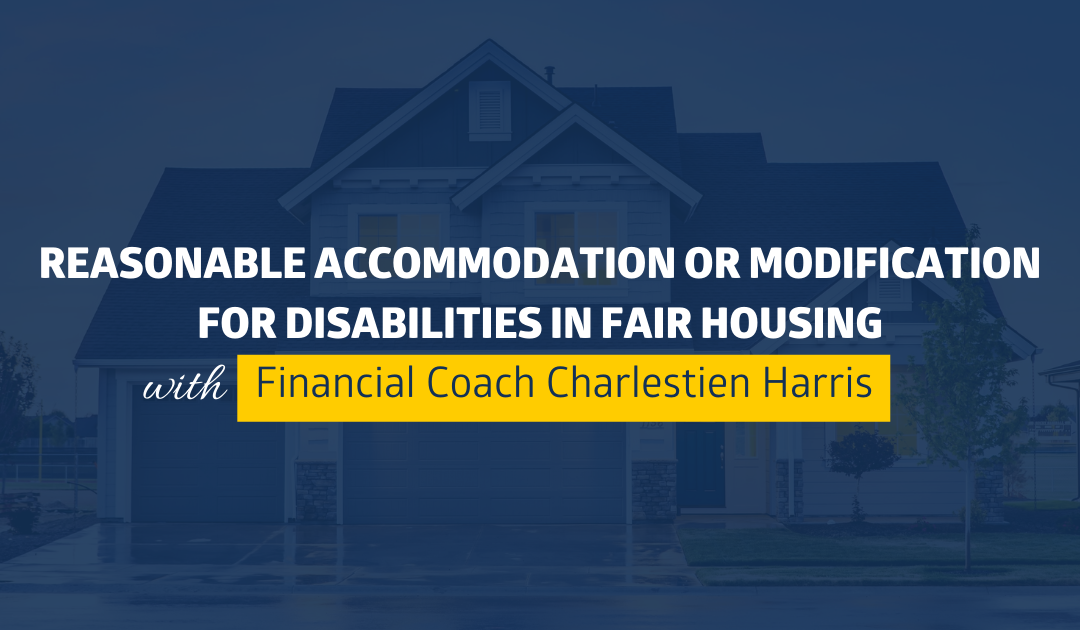By Charlestien Harris:
The Fair Housing Act of 1968 addresses housing issues that arise for disabled persons seeking decent housing opportunities. It established guidelines to govern the process and procedures affecting the outcome of making allowances for housing availability to the disabled community. A disabled person can request a reasonable accommodation or modification if it will make a housing unit available for occupancy.
What is a reasonable request?
- One that does not cause an undue financial and administrative burden to the housing provider
- One that does not cause a basic change in the nature of the housing program available
- One that will not cause harm or damage to others
- One that is technologically possible
Under fair housing laws, people with disabilities can request accommodations to rules, policies and practices in housing. If the requested accommodation is reasonable, a landlord or other covered housing provider must permit the accommodation. The Department of Housing and Urban Development (HUD) has provided guidance for consumers and providers when it comes to evaluating the reasonableness of a specific request.
Disability is defined under the Fair Housing Act as a physical or mental impairment that substantially limits one or more of such person’s major life activities. This definition includes people who have a history of such an impairment, and people perceived as having an impairment. Under the Fair Housing Act, people with physical or mental disabilities are permitted to request reasonable accommodations that are necessary for a person with a disability to have an equal opportunity to “use and enjoy” housing. It is the responsibility of a landlord, property manager, condominium board or any other housing provider to grant an accommodation request when it is reasonable.
Examples of accommodations include:
- Allowing an assistance animal in “no pets” community/housing
- Lease application in large print
- Permitting a live-in personal care attendant
- Transfer to a more accessible unit/community
- Installation of a reserved marked handicapped parking space
Reasonable modifications, as defined by the Fair Housing Act, are changes to the physical structure of a dwelling that are necessary to afford a person with a disability full enjoyment of the premises. If a reasonable request were made for modifications to be completed in an individual unit or in the common area of housing, a housing provider would have to permit the modification.
Examples of modifications include:
- Widened doorways in unit
- Grab bars in bathroom or at entrance to unit
- Removal of below-counter cabinets
- Installation of wheelchair ramp at entrance to building/unit
- Replacing door knobs with levers
- Installation of visual and tactile alert devices
In most situations, it would be the tenant’s responsibility to pay for any requested modifications. If a property receives federal financial assistance, then it is the responsibility of the housing provider to pay for the modification. In many instances, this applies to nonprofit housing providers. A landlord may require that modifications be done in a professional manner and, if necessary, may ask that a deposit be put in escrow to cover the costs of returning the dwelling to its original condition.
A landlord cannot:
- Dictate a particular contractor
- Require a particular design concept for aesthetic reasons
- Place any restrictions upon granting a reasonable modification request
The Department of Justice (DOJ) and the Department of Housing and Urban
Development (HUD) are jointly responsible for enforcing the federal Fair Housing Act which prohibits discrimination in housing on the basis of race, color, religion, sex, national origin,
familial status, and disability. You can read more from the DOJ and HUD at www.justice.gov and www.hud.gov with information on how to file a request or complaint when it comes to addressing housing issues for the disabled.
For more information on this and other financial topics please email me at Charlestien.harris@southernpartners.org or call me at 662-624-5776. Until next week–Stay financially fit!

